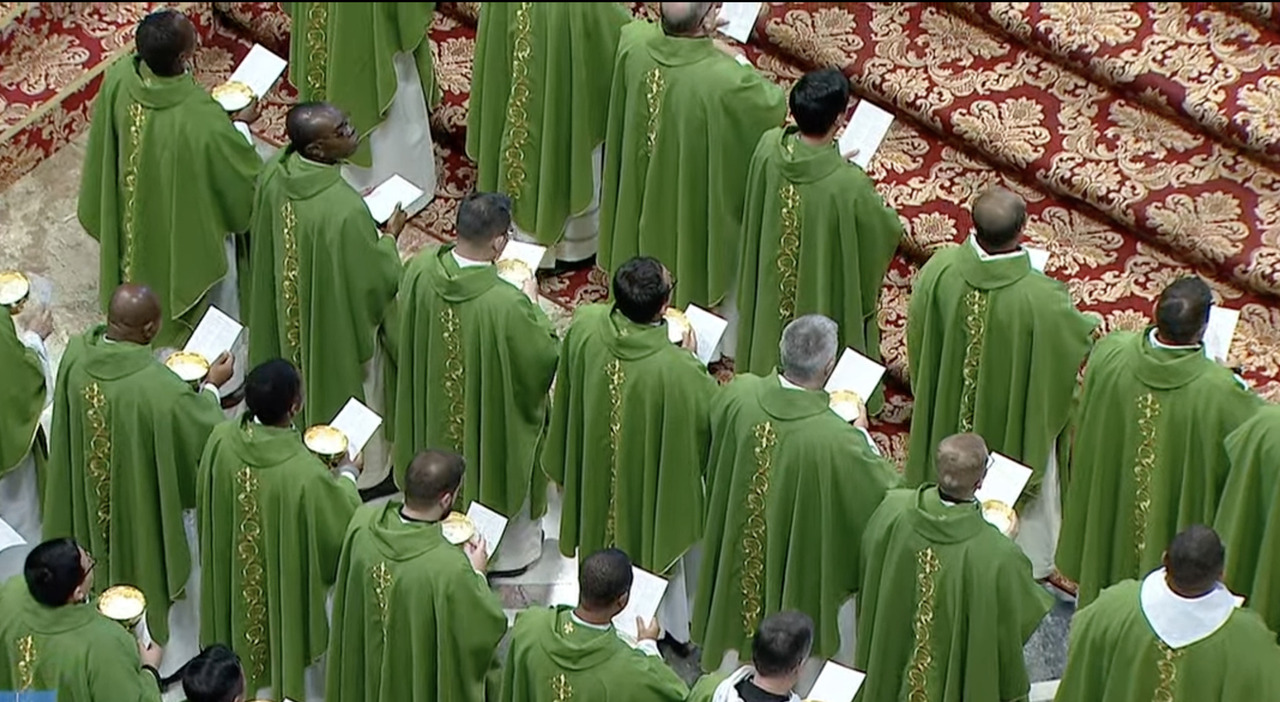The case of Don Antonio, a parish priest from Avellino who leaves the cassock for love, is just the latest in a long series. The tip of the iceberg. The phenomenon of abandonment in many countries of the world has long led the Vatican to reflect on whether it is now time to lift the ban on priestly celibacy. The knot is very thorny and has been dragging on for some time. Even during the last Synod on synodality, it was at the center of a heated debate between conservatives and progressives. Various high-ranking Vatican officials have spoken out in various capacities to abolish the age-old rule, arguing that it is a tradition and not a dogma of faith. The latest in chronological order to intervene was Archbishop Charles Scicluna, who reflected on the high number of capable priests who, in recent decades, have thrown the cassock to the nettles to start a family. "If it were up to me, I would reconsider the requirement of celibacy. Experience has shown me that it is something we need to think seriously about. They preferred to choose marriage," he told the Maltese newspaper Times of Malta, explaining, among other things, that married priests are already admitted in certain rites - for example, the Greek-Latin one - on a par with the Orthodox and Byzantine tradition.
In the meantime, the front of those beyond the Tiber are increasingly convinced that it is time to change the tune - also to balance a bit the drop in vocations - has strengthened and seems to aim to fight this autumn, during the second episode of the Synod on Synodality. For many reformers, allowing priests to start a family could stem the problem of the collapse of vocations which, in anticipation, risks putting the ecclesiastical organization in serious crisis in many countries now affected by rampant secularization.
RATZINGER
The underground debate remains fierce and has been open for some time: it reached its peak in 2017, when there was the Synod on the Amazon and where a preferential path should have been included to allow in that vast region the introduction of the so-called viri probati - also married men of proven faith and virtue - to whom to entrust the celebration of mass in areas where missionaries are not seen for months. The project had been put forward mainly by Brazilian and German bishops but was then set aside because it was considered premature and also because, precisely in that period, a heavy theological reflection was released from then Pope Emeritus Ratzinger. From his retirement in the Monastery Mater Ecclesiae he pronounced himself against, as indeed a large slice of traditionalist cardinals.
DISCIPLINE
Pope Francis recently stated that perhaps it is time to revisit the issue of the viri probati to meet the needs where there are serious priest shortages. Last year, Bergoglio spoke again about the rule of celibacy, emphasizing that "it is not eternal, like priestly ordination", but a "discipline" that could be reviewed.
Even the Protestant and Anglican Churches - in addition to the Orthodox ones - allow married priests. However, in recent years, a contrary shift has also been felt there: several married Anglican priests have converted to Catholicism in Great Britain after the ordination for women was introduced, which they strongly opposed. In the meantime, a movement has even been born - the Movement for Married Clergy (MmaC) - which has asked for a national English commission to discuss how to address the shortage of priests, including the abolition of the rule of celibacy. For now, Cardinal Vincent Nichols, Archbishop of Westminster has responded with a no, but it could be just a tactical move in view of the next autumn synod.
FERNANDEZ
Pushing very hard in this direction is the German episcopate, spearhead to break the tough Roman bans: it acts based on the requests received from the base in these years of preparation for the Vatican synod. The arrival at the Dicastery of Faith of Cardinal Victor Fernandez has however fueled many hopes. The Argentine theologian is counted among the ranks of the super progressives, and has already signed important measures such as the blessing of gay couples, the news on cremation, the admission to baptism for transsexuals. Recently, he has caused a stir with a theological book on mysticism that has human sexuality as its object. In a chapter, he addresses in detail the male and female orgasm, placing them in direct relation to the divine. A volume written when he was only thirty years old, brought out these days by the opposition to criticize precisely his bizarre vision of the magisterium. Fernandez had to distance himself, stating that today he certainly would not rewrite it and that is why he has downgraded it from his vast bibliography. Meanwhile, the underground war between reformers and conservatives continues unabated. The Church of Francis has never been as divided as it is today.
This article is automatically translated
